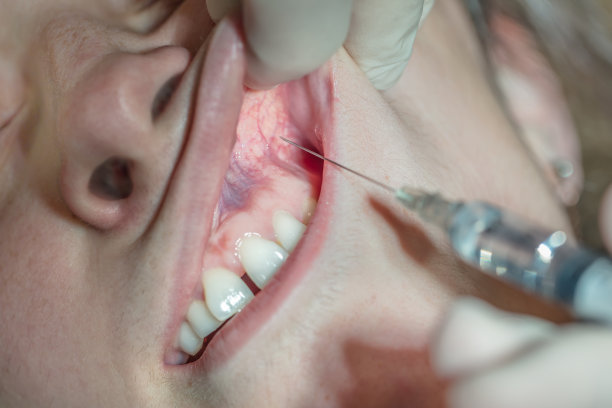Summary: Dental fillings are essential procedures for restoring the functionality and aesthetics of teeth damaged by decay. However, adhering to important precautions before and after the treatment is crucial for optimal oral health. This article highlights key considerations such as understanding the filling materials, preparing for the procedure, self-care after treatment, and follow-up visits with your dentist. By following these guidelines, patients can ensure a smooth experience, minimize discomfort, and promote the longevity of their fillings. Each aspect is detailed to enhance awareness and preparedness, empowering patients to take charge of their oral health.
1. Understanding Filling Materials and Choices

Before getting a dental filling, it is vital to understand the different materials available. Common filling materials include amalgam, composite resin, gold, and porcelain. Each type offers unique benefits, ranging from durability to aesthetic appeal. For example, composite fillings blend seamlessly with natural teeth, making them an excellent option for visible areas.
Discussing material options with your dentist can help you make an informed decision. Factors such as the extent of decay, the location of the filling, and individual health concerns will guide the choice. Understanding pros and cons can alleviate anxiety about the procedure and ensure that you select the best option for your needs.
Moreover, some patients may have specific allergies to certain materials, such as nickel found in amalgam. Its essential to communicate any allergies or sensitivities to your dentist before undergoing the procedure to avoid complications later.
2. Preparing for the Dental Filling Procedure
Preparation is key to a successful dental filling procedure. Patients should ensure they are free of infections, such as active gum disease, as these can hinder the filling process. Scheduling a dental cleaning prior to receiving a filling can also be beneficial in ensuring overall oral health.
Additionally, its important to have a clear understanding of the procedure itself. Ask your dentist about what to expect, the duration of the filling, and the anesthesia process. Knowing what lies ahead can help reduce anxiety and make the experience more comfortable.
Finally, plan your post-appointment activities. If you require local anesthesia, arrange for someone to drive you home, as reactions can vary. Also, consider having a light meal before the appointment, as certain types of anesthesia can leave you feeling numb or uncomfortable for some time afterward.
3. Post-Treatment Care and Self-Care Tips
After receiving a dental filling, its crucial to follow post-treatment care instructions to ensure optimal healing. Initially, avoid eating hard or sticky foods for at least 24 hours to allow the filling to set properly. This prevents dislodging or damaging the new filling.
Additionally, watch for signs of complications, such as persistent pain or sensitivity to temperature changes. Some tenderness is normal, but severe pain may indicate issues that need to be addressed. If this occurs, don鈥檛 hesitate to contact your dentist promptly.
Home care also plays a significant role in maintaining the integrity of your dental fillings. Continue your regular oral hygiene routine, including brushing twice daily and flossing. Be gentle around the filling area to ensure thorough cleaning without causing harm to your dental work.
4. Importance of Follow-Up Dental Visits
Follow-up appointments are essential to monitor the health of your dental fillings and overall oral hygiene. Your dentist may want to check the fillings condition during routine exams, especially in the months following placement. These visits can help catch any issues early before they escalate into more significant problems.
Additionally, regular check-ups allow your dentist to assess your oral hygiene habits and provide tailored advice on maintaining your fillings. This ongoing relationship can contribute significantly to your long-term oral health.
Investing time in follow-up visits not only helps safeguard your fillings but also enhances your overall dental health. Ensure you stay consistent with your dental appointments and maintain communication with your dentist about any concerns or changes in your oral health.
Summary:
In conclusion, receiving dental fillings is a critical step in preserving oral health. By understanding the various filling materials, preparing adequately for the procedure, adhering to post-treatment care guidelines, and attending follow-up visits, patients can optimize their experience and enhance the durability of their dental work.
This proactive approach creates a strong foundation for ongoing oral health maintenance and helps prevent future dental issues. Remember, your dentist is your ally in this journey, so prioritize communication and care.
This article is compiled by Vickong Dental and the content is for reference only.
Vickong Dental
Vickong Dental is a large medical group established in Hong Kong in 2008 by professors from well-known medical universities in Guangdong and Hong Kong, as well as medical doctors from key national '985' universities (including Master's supervisors and senior professors). The chain of branches brings together expert dentists with PhDs and Master's degrees from Hong Kong and Mainland China, committed to providing high-quality dental treatment.
"Vickong Dental Practices the University Motto of 'Healing and Serving Society,' with a Stable Operation for Sixteen Years. It Has Been honored with Hong Kong Enterprise Leaders's Choice,' and is a Global Trusted Implant Center for the Nobel Implant System. Recommended by Hong Kong Metro Broadcast and Guangdong Television, it Serves Customers from Over Thirty Countries and Regions, Gaining the Trust and Favor of Citizens from the Guangdong-Hong Kong-Macau Greater Bay Area and Surrounding Cities.

Thousands of customers' unanimous praise
The most recognized and highly recommended dental service by customers in the Guangdong-Hong Kong-Macau Greater Bay Area
We Ensure You Receive Detailed Care and Attention Here
Hong Kong standards, Shenzhen prices, Your Trusted English-speaking dentists

Vickong Dental Medical-Grade Instrument Disinfection Process
Vickong Dental Medical-Grade Instrument Disinfection Process

Vickong Dental Chain: A Warm and Comfortable Environment for Treatment






Appointment Hours

Q&A
Why choose Vickong Dental?
Vickong Dental practices the university motto 「Medicine to Benefit Society」, with each branch bringing together highly qualified dentists with doctoral and master’s degrees from Hong Kong and the Mainland, and has maintained seventeen years of steady operation。Recipient of 「2024 Hong Kong Enterprise Leaders Brand」, 「2025 Hong Kong Enterprise Leaders Brand」, a Nobel Biocare Global Trusted Implant Center, and a brand recommended by Metro Radio Hong Kong and Guangdong TV。
To date, we have served customers from more than thirty countries and regions,earning exceptionally high word-of-mouth recognition and trusted recommendations from residents across the Guangdong-Hong Kong-Macao Greater Bay Area and surrounding cities
We have eight major branches in Zhuhai、Shenzhen,and a consultation and service assurance center in Hong Kong,so you can book a free consultation at any time for any questions,which is very reassuring.
If I do not accept the quotation after the CT scan, will I be charged??
No! As long as the actual treatment has not started, you will not be charged any fees.
Will there be any additional charges during the treatment process?
No, there won’t be any additional charges. Before treatment begins, we will clearly explain the treatment plan and its corresponding fees. Only after the patient agrees and signs the consent form will we proceed with the dental service.
Can I pay in Hong Kong dollars?
Yes. Vickong Dental accepts payment in Hong Kong dollars. The amount will be converted based on the exchange rate of the day, and the applicable rate will be clearly communicated to you in advance.
Can I reschedule my appointment at any time?
Yes. Please contact us via **WeChat** or **WhatsApp** as early as possible, providing your original appointment time and details, along with your preferred new date and time slot for rescheduling.













